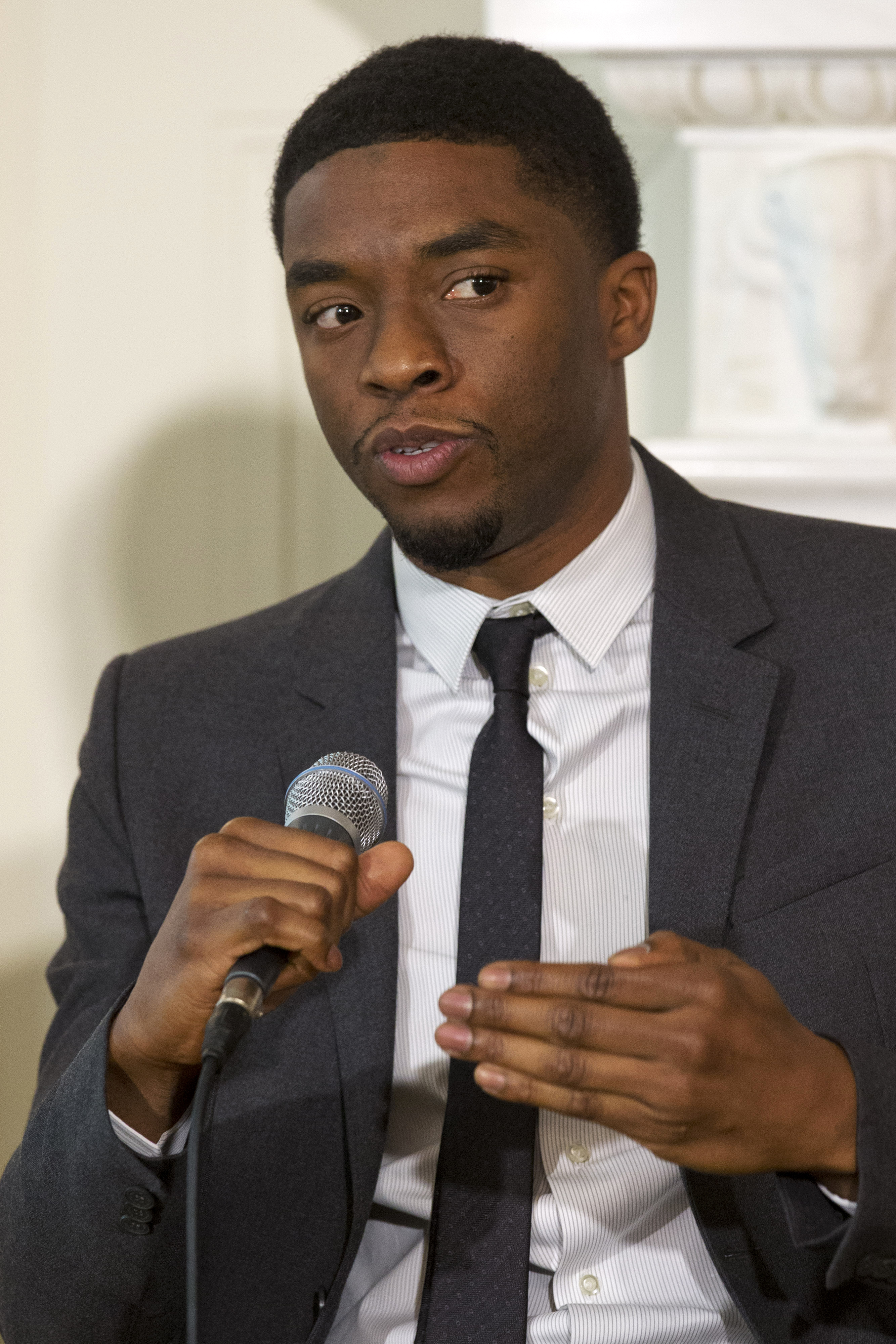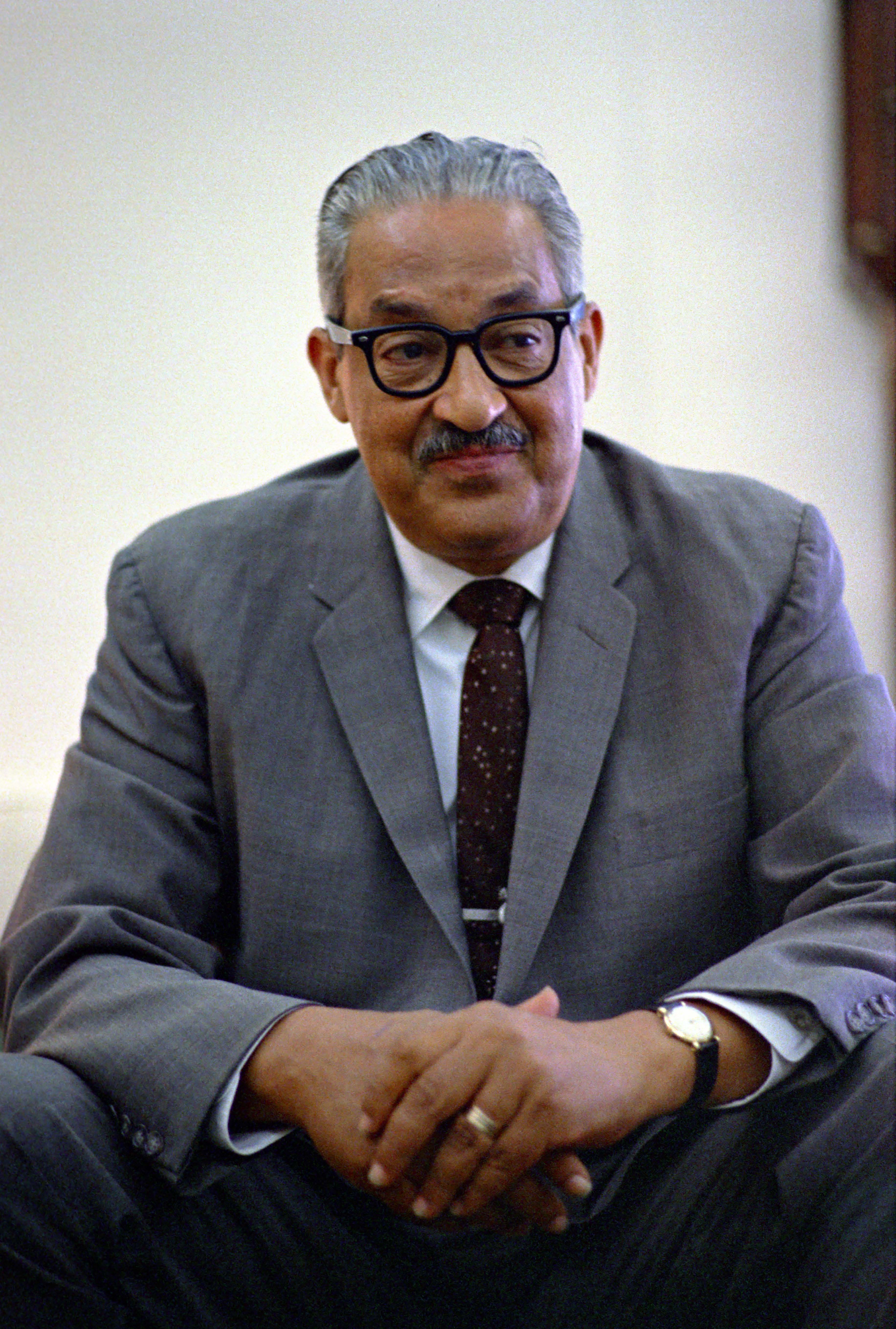Here's Why a Black Actor's New Role Is Causing a Big Debate About Skin Color

By:
Chadwick Boseman, the same actor who played Jackie Robinson and James Brown will be playing another black American icon: Justice Thurgood Marshall.
However, his latest role is causing some controversy.
Boseman will depict Marshall, the U.S. Supreme Court's first black justice, in the film "Marshall," which is scheduled to be released in October.
 AP Images - apimages.com
AP Images - apimages.com
The trailer, which came out on Wednesday, chronicles Marshall's life from his days as a young attorney with the NAACP in 1941, within the era of legal segregation and before his ascent to the U.S. Supreme Court.
The film is significant both for its ode to an important historical figure but also because Hollywood movies aren't usually led by minorities. A University of California study found that in 2014 nearly 75 percent of the 100 top grossing films were all white and only 17 percent had non-white leads.
However, people on social media are pointing out a difference between Boseman and Marshall.  Wikimedia Commons/ National Archives and Records Administration - wikimedia.org
Wikimedia Commons/ National Archives and Records Administration - wikimedia.org
Boseman is a darker black man, but the famous attorney and Justice was very light-skinned.
Why would Boseman's skin color matter?
The distinction is important because of colorism, or the privilege lighter-skinned black people receive within their own community and in broader society compared with darker-skinned black people. The phenomenon has ties to the legacy of trans-Atlantic slavery, and colorism also pervades other non-white societies around the globe, often stemming from a history of colonialism.
In an interview with late night comedian Jimmy Kimmel, Boseman said he initially didn't want to play Thurgood because he was light-skinned.
"I didn't want to do it at first because Thurgood Marshall is a lot lighter than me. I don't look like him in terms of complexion," Boseman said in the interview posted to Youtube on Wednesday. "Once I read it, I realized that really wasn't important. You know, each movie you do about a real person, it's a painting and you choose certain things in the painting you want to pull out and you want to show, so for this one it was the spirit of the man."
This isn't the first time that the casting of a historical black figure has prompted a debate about colorism.
Zoe Saldana, a light-skinned actor, received huge backlash for her portrayal of music icon and civil rights activist Nina Simone, who was dark-skinned and often spoke about it. In the film Saldana's skin was darkened and she wore a prosthetic nose. Some people tweeted that Boseman's portrayal is much more acceptable because he doesn't wear a prosthetic or "blackface" makeup.
However, Twitter users who argued against Boseman's casting said that Marshall's skin tone was integral to his experience as a black man in America. Some going as far to say that he would not have been appointed to the U.S. Supreme Court if he were darker.
There's research to support these arguments.
Studies show that darker skinned black people are less likely to be hired, less likely to hold elected office, and have a lower socioeconomic status than lighter skinned people.
Sociologist Frantz Fannon summarized these outcomes in his 1952 book "Black Skin White Masks," noting how blacks who more closely resemble whites are given greater advantages.
“The colonized is elevated above his jungle status in proportion to his adoption of the mother country's cultural standards,” he wrote.
